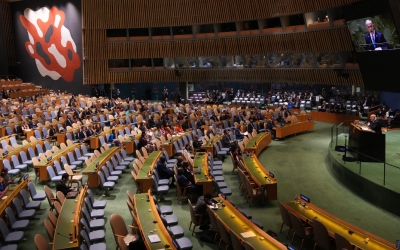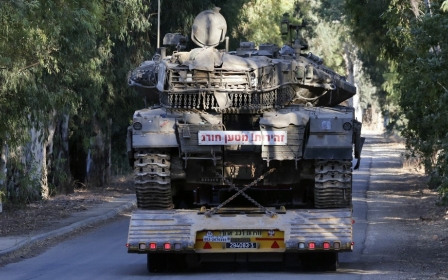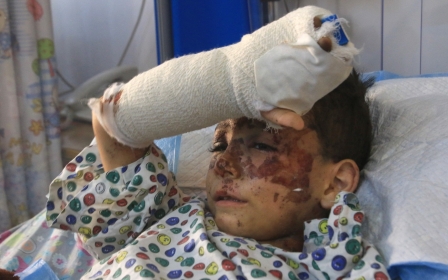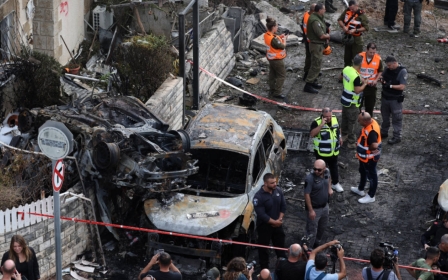War on Lebanon: Israeli jets pound Beirut with series of massive strikes
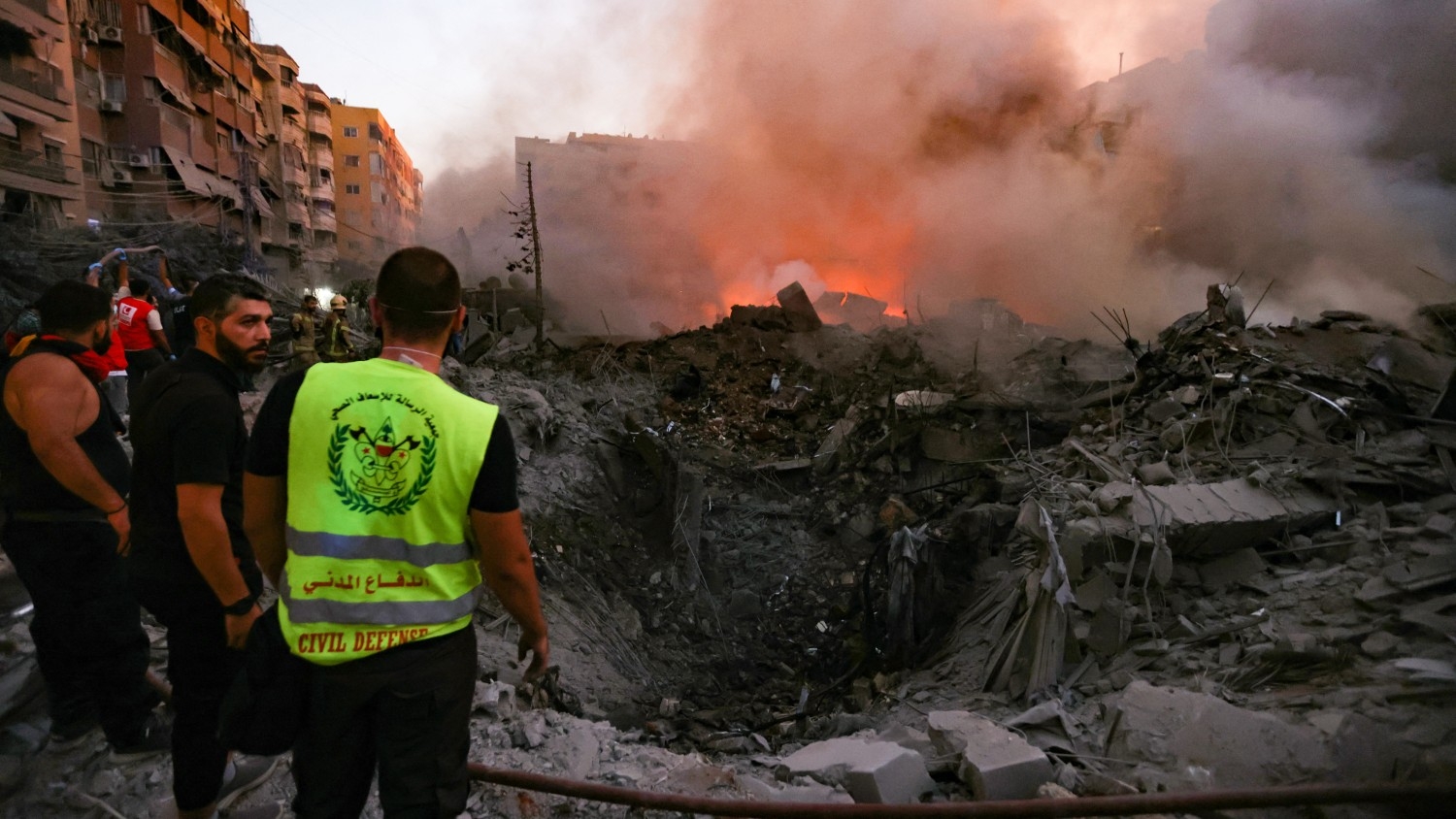
Israeli fighter jets carried out a series of massive air strikes on Beirut's southern suburbs on Friday, in what appeared to be the most intense bombardment of the Lebanese capital since the 2006 war.
At least 10 explosions rocked the capital's southern suburbs, a densely-populated area colloquially known as Dahiyeh, with large clouds of black smoke rising over the city.
Videos seen by Middle East Eye showed at least four flattened residential buildings with extensive damage to nearby structures.
The Israeli army claimed it targeted Hezbollah headquarters, which were allegedly located under residential buildings, and Israeli media claimed that the group's leader, Hassan Nasrallah, was the target of the attack.
New MEE newsletter: Jerusalem Dispatch
Sign up to get the latest insights and analysis on Israel-Palestine, alongside Turkey Unpacked and other MEE newsletters
Iran's Tasnim news agency, which is affiliated to the Revolutionary Guards, quoted security sources as saying Nasrallah was in a "safe place and what is published in the Hebrew media is not true."
MEE could not independently verify the claims.
Videos and photos published by Lebanese social media users showed ambulances and rescue crews rushing to the scene of the strikes to find several fires that erupted throughout the blast site.
An enormous crater could also be seen near one of the buildings that had been struck.
According to the Lebanese health ministry's preliminary death toll, at least two people were killed and another 76 were wounded in the attacks.
Friday's attacks came less than two hours after Netanyahu spoke at the UN general assembly, where he defended his war on Gaza and repeated aerial attacks on Lebanon.
"Israel has every right to remove this threat and return our citizens to their home safely. And that's exactly what we're doing," Netanyahu said, when referring to this week's attacks on Lebanon which killed more than 700 people, including scores of women and children.
"We will not rest until the remaining hostages are brought home," he added.
Netanyahu later cut short his visit to New York and was set to fly back to Israel on Friday evening, according to his office, underlining the potential significance of the events unfolding in Lebanon.
Israel's wars in the Middle East have been one of the main topics of conversation as world leaders gathered in New York City for the annual summit at UN headquarters.
Last Tuesday, thousands of pagers exploded across the country, killing at least 14 people.
Then on Monday, Israel began launching hundreds of air strikes that have killed more than 700 people across Lebanon this week, including at least 50 children, with over 550 deaths reported on Monday alone.
Additionally, more than 118,000 people have been displaced, according to the International Organization for Migration (IOM). However, Lebanon's minister in charge of the crisis response estimates that the actual number of displaced people is more than 250,000.
Hezbollah has responded with rocket and missile attacks on a number of sites across Israel.
Lebanon's caretaker Prime Minister Najib Mikati, who is currently in New York for the UN General Assembly, said Israel's attack shows it "does not care" about efforts to bring about a ceasefire.
On Thursday, Israel rejected a US and French proposal for a temporary 21-day truce between Hezbollah and Israel, despite a senior US official telling reporters on Wednesday that the plan had been communicated to Israel.
Middle East Eye delivers independent and unrivalled coverage and analysis of the Middle East, North Africa and beyond. To learn more about republishing this content and the associated fees, please fill out this form. More about MEE can be found here.


